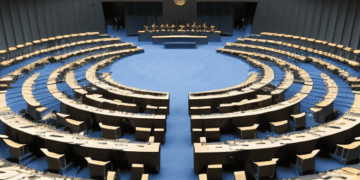An inter-institutional agreement has been reached between the European Parliament, the Council, and the Commission regarding the Anti-Money Laundering Directive (AMLD) and Regulation (AMLR). These measures are part of a broader legislative package aimed at combating money laundering and terrorist financing within the European Union. The agreed legislation aims to establish a unified rulebook across EU member states, thereby preventing disparities and ensuring consistent enforcement of regulations. It will introduce directly applicable European rules to enhance the collective effort against criminal activities related to money laundering.
Renew Europe MEPs have voiced their support for the agreed-upon measures. Eva Poptcheva, Vice-Chair of the Committee on Economic and Monetary Affairs, emphasized the directive’s role in raising standards for the prevention of money laundering and terrorism financing, closing existing loopholes exploited by criminals. Ramona Strugariu, LIBE shadow rapporteur on the AML/CFT legislative package, highlighted the significance of the directive in providing access to beneficial ownership registers for frontline actors in the fight against corruption and money laundering. Additionally, she noted the inclusion of football clubs as obligated entities, marking a notable change to address money laundering within the sector.
Dragoş Pîslaru, ECON shadow rapporteur, stressed the need for sophisticated measures to combat money laundering effectively. He emphasized the moral imperative of tackling this crime and highlighted the economic and moral benefits of preventing money laundering, stating that it is essential for safeguarding transparency, justice, and individual freedom. The new legal framework aims to enhance cooperation and data sharing between member states’ Financial Intelligence Units (FIUs) and clarifies access to beneficial ownership registries. Additionally, it introduces limits on cash payments, expands the scope of obligated entities, and emphasizes the role of public-private partnerships in combating criminal activity.
The agreement also underscores the importance of targeted financial sanctions related to terrorism and terrorism financing and emphasizes the positive role of public-private partnerships in fighting criminal activity. Overall, the agreed-upon legislation aligns with efforts to combat money laundering effectively within the European Union and ensures that the future Anti-Money Laundering Authority (AMLA) can fully exercise its powers.
Get the best supply chain report news insights on The Supply Chain Report. Visit ADAMftd.com for free international trade tools.
#AntiMoneyLaundering #AMLD #AMLR #EuropeanUnion #FinancialRegulations #TerrorismFinancing #EULegislation #MoneyLaundering #PublicPrivatePartnerships #FinancialIntelligenceUnits #RegulatoryCompliance #CorruptionPrevention #BeneficialOwnership #EUParliament #CombattingCrime















